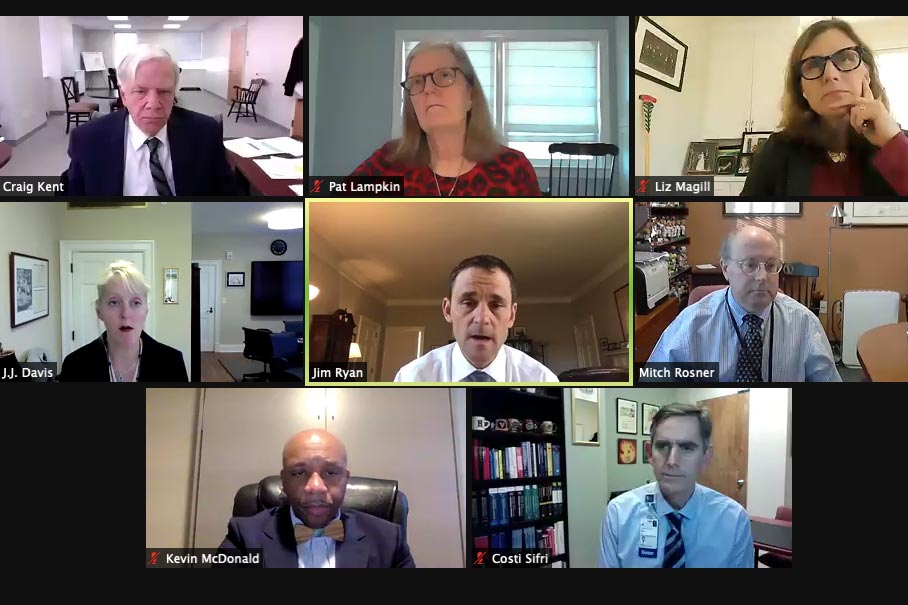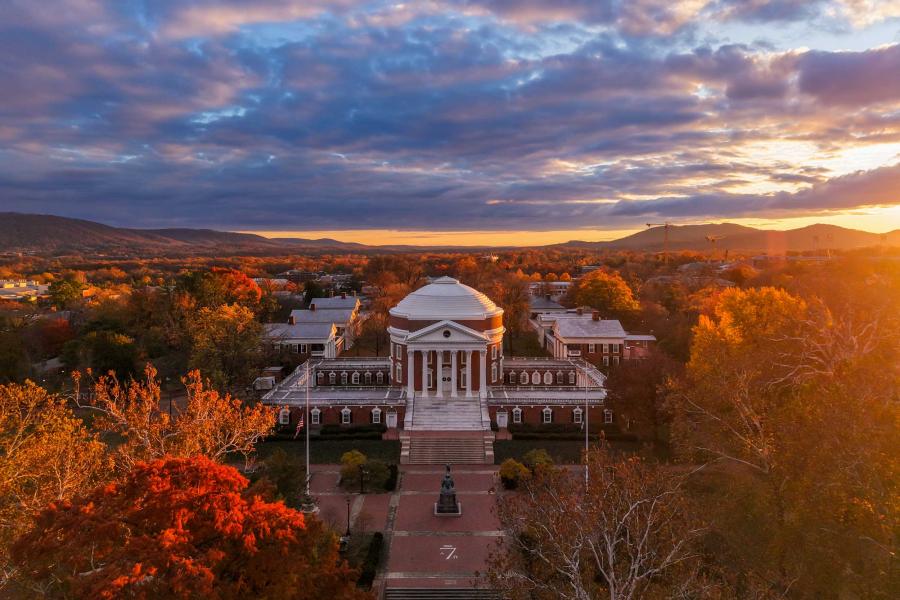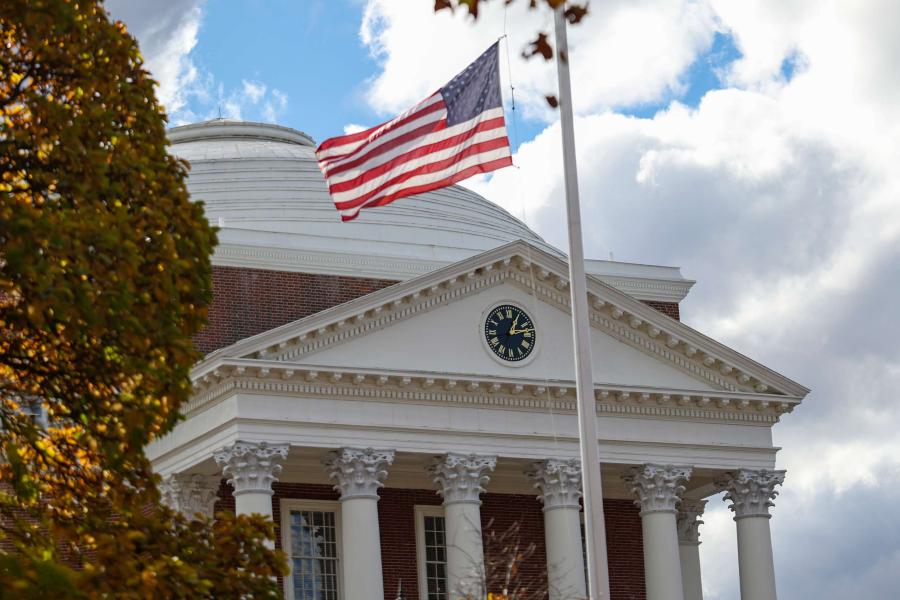In light of the continued COVID-19 crisis, what will the spring semester at the University of Virginia look like?
On Thursday afternoon, members of UVA’s leadership team did their best to answer that question during a virtual town hall.
With undergraduate courses scheduled to begin on Monday, UVA President Jim Ryan joined members of the University’s executive leadership team, as well as medical experts, including Dr. Costi Sifri, director of hospital epidemiology at UVA Health; Dr. K. Craig Kent, executive vice president for health affairs; and Dr. Mitch Rosner, Henry Mulholland Professor of Medicine and chair of the Department of Medicine.
The town hall was open to students, faculty, staff, parents and community members, who were able to submit questions to the panel. A full recording is available here.
At the start of the meeting, Ryan explained that the decision to allow students to return to Grounds – given the high number of cases locally and nationally – wasn’t taken lightly. He said it was only made after many conversations with medical and public health experts.
“The first [reason] is that we have learned a lot from the first semester and feel like we’re in a much stronger position to respond and to contain the virus – in part because of our testing capacity, in part because we have experience now in getting students into isolation and quarantine spaces quickly,” he said. “In essence, we have a little bit of a playbook this semester, which will help.
“Second, we know students who live outside of our residence halls and in Charlottesville would likely return whether our classes were in person or not, and welcoming them to Grounds actually gives us a better chance to get a sense of what’s happening and allows us to keep more people safe, including members of the Charlottesville community.
“And third, we consulted with our hospital leaders and health system leaders, including Dr. Craig Kent, who are confident about our hospital capacity.”
That said, given the state of the virus, Ryan said extra precautions have been put in place for this semester. More information about public health measures in place is available here.
- For now, the gatherings are limited to no more than six people.
- All students will be required to submit a negative COVID-19 test before they return.
- All students will be tested within the first seven days upon their return and will undergo mandatory weekly tests, with testing available for faculty and staff as well.
“The bottom line here is that this semester, like last semester, is going to be challenging,” Ryan said. “In some ways, it will be more challenging, given the prevalence of the virus; given the new, more contagious variants; given the cold weather; and given COVID fatigue. It’s going to take even more patience, vigilance and creativity, especially until the weather gets warmer.
“But I’m convinced one of the biggest reasons we made it through last semester successfully was that we took responsibility not just for ourselves, but for the entire community. I think it’s that perspective and spirit of community that we’re going to have to maintain this semester if we’re going to be as successful.”

Thursday's town hall including members of the University's leadership team and medical experts.
Kent, Sifri and Rosner echoed those sentiments, with Rosner providing a COVID case update for the region.
“Locally, in Charlottesville and Albemarle County we remain actually quite lucky that we’re a bubble, with lower case rates, lower viral positivity case rates,” he said.
“But there are also some concerns on the horizon, with the emergence of new variants with increased transmissibility. … We’re monitoring this closely.”
During the question-and-answer session, Provost Liz Magill talked about why many classes this spring will be taking place online and when to expect more in-person classroom experiences.
“It’s a great question asked by many folks,” she said. “I would say one reason that not as many classes are in person as one might wish is the restrictions in the classroom, where students need to be six feet apart. That changes the capacity of many our classrooms. We’ve looked at some alternative spaces, and we have some classes being taught there.
“Secondly, faculty determine what is the best thing to do pedagogically. Many faculty have come up with extremely creative ways of teaching even large classes in sections, small groups, a third of the class. And some faculty feel the that pedagogy is better when all [classes] are online. If you think about the hybrid classroom, that’s a pretty difficult way to teach a class when you have some in the class and some on Zoom. And we have some students who cannot be here, so the vast majority of our classes must have an online component, with the exception of classes that require a clinical component.”
Increasing the size of some courses that are available in person was also important, Magill said.










